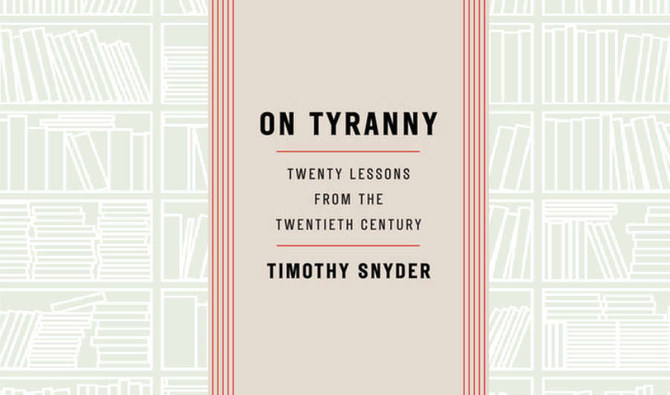Author: Timothy Snyder
“On Tyranny: Twenty Lessons from the Twentieth Century” is a timely political manifesto by multiple award-winning US historian and Yale University professor Timothy Snyder.
The book explores the notion of tyranny in its present form, drawing on lessons offered by history and past experience.
Snyder analyzes authoritarianism and shows how tyranny takes shape in contemporary American politics.
The book is written as a guide, with topics ranging from encouraging patriotism, rather than nationalism, to contributing to good causes.
In chapter four, “Take Responsibility for the Face of the World,” Snyder shines a light on the power of gestures seeking to mobilize people toward a single agenda or viewpoint.
Readers are urged to confront humanity’s past mistakes and be aware of the threat posed by hateful symbols, such as the Soviet Union’s portrayal of wealthy farmers as pigs in order to justify their slaughter.
“On Tyranny” was published in 2017 and appeared on The New York Times bestseller list shortly afterwards where it remained until late 2021.
Snyder has also won global recognition for his history research and contributions to academia.
He graduated from Brown University and earned a Ph.D. from the University of Oxford before joining Yale as professor of modern East European political history.
Among his most celebrated books is “Bloodlands: Europe Between Hitler and Stalin,” which has translated into more than 30 languages and received 12 awards, including the Leipzig Award for European Understanding and the Emerson Prize in the Humanities.



























